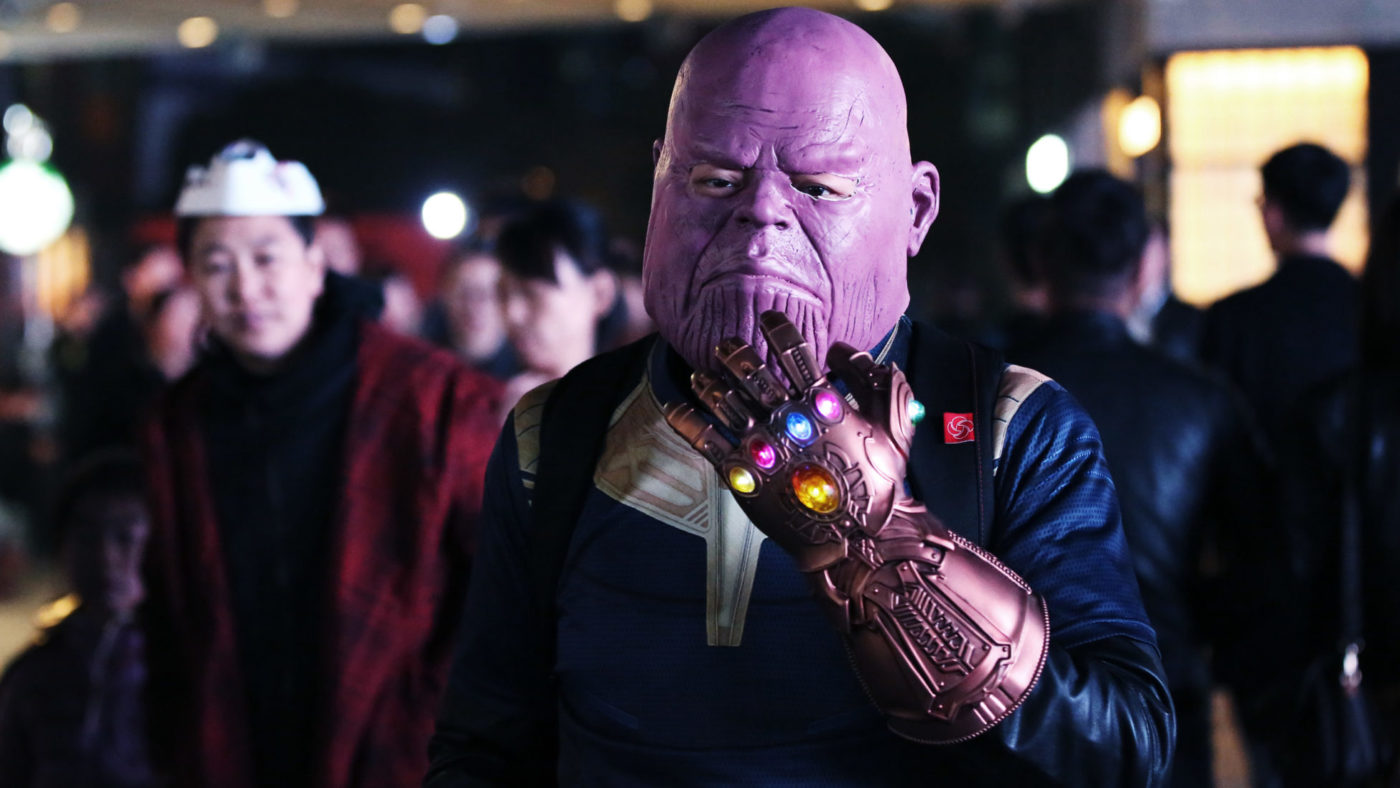The following story contains spoilers for Avengers: Infinity War.
Marvel Studios’ Avengers: Endgame is anticipated to be one of the biggest cinematic events in film history. The film is yet to be released, yet it has already shattered numerous box office records. The movie will follow up on the beloved group of superheroes and their efforts to undo their failure to prevent the supervillain Thanos from wiping out half the universe with the snap of a finger.
Thanos justified this monumental fictional genocide with the idea that too many people were consuming too much of the universe’s resources. He stated:
The universe is finite. Its resources, finite. If life is left unchecked, life will cease to exist. It needs correcting.
Environmentalists have also promoted the myth that overpopulation will lead to a scarcity of resources and result in planetary cataclysmic events. There’s even a popular internet forum claiming Thanos did nothing wrong because overpopulation is a problem.
On a related note, the United States Senate voted 57-0 last month against the Green New Deal, a resolution supposedly designed to prevent the Earth from suffering a global climate catastrophe partially born from the exhaustion of resources.
Before the vote, Senator Mike Lee from Utah mocked the resolution with giant photos of pop culture references. He then proposed that the real way to promote human flourishing and prevent such a cataclysmic disaster was to have more kids.
His suggestion received backlash from New York Magazine, The Washington Post, Stephen Colbert, and Alexandria Ocasio-Cortez, a sponsor of the Green New Deal. But unfortunately for his critics—and Thanos—Sen. Lee was right.
The best solution to resource abundance and global disaster is to have children, so long as human beings have the freedom to create and the liberty to trade with one another.
The notion that an increase in population would lead to resource scarcity was made famous in modern times by biologist Paul Ehrlich, who made the argument in his 1968 publication The Population Bomb.
His theory seemed like common sense and was widely accepted, and it was even taught in schools. But economist Julian Simon argued against Ehrlich. He said humans would innovate their way out of resource scarcity and later won an infamous bet against Ehrlich when five non-government-controlled raw materials Ehrlich picked decreased in price and increased in availability.
Worse for Ehrlich, economics shows there is a superabundance of resources as the population grows and when people have the freedom to pursue creative solutions.
In Dec. 2018, Human Progress published a study called “The Simon Abundance Index,” which re-tested the hypothesis of Simon and Ehrlich’s bet. The researchers used annual prices reported by the World Bank and the IMF from 1980 to 2017, and they expanded the number of commodities from five to 50, including items from energy, food, materials, metals, and precious metal categories.
The index converts money prices to time price, which tells how long someone has to work to earn the money to buy an item. For example, if a gallon of milk is $4 and a worker earns $16 an hour, the time price is one-quarter of an hour, or 15 minutes.
The only way for time price to decrease is if actual prices decrease and/or hourly incomes increase. According to the report, the average time price of the 50 commodities decreased by 64.7 percent. During this same 37-year period, global population increased by 69.3 percent from 4.5 billion to over 7.5 billion. For every one percent increase in population, time prices decreased by almost one percent.
In other words, more people made these foundational commodities more abundant, just as Julian Simon predicted.
One fatal flaw in the belief that overpopulation leads to scarcity is it assumes resource consumption is a zero-sum game, where a resource is only available for one-time use because, as Thanos said, it is finite. But that thinking is flawed. The atoms in the electronic device you’re reading this article on have always existed, long before it was manufactured. But because of freedom and human ingenuity, we have come up with new ways to rearrange these atoms to create value for one another.
In short, technology and innovation enable us to take what we consider limited resources and unlock their infinite potential to produce massive abundance. But people must have the freedom to pursue these ideas where such innovations originate.
And this same ingenuity to create resource abundance can help us with climate change. As Sen. Lee said in his presentation:
[Climate change is] a challenge of creativity, ingenuity, and technological invention. And problems of human imagination are not solved by more laws, but by more humans. More people mean bigger markets for innovation. More babies mean more forward-looking adults—the sort we need to tackle long-term, large-scale problems.
Now, more procreation won’t automatically prevent environmental calamities and resource scarcity. People must have the economic freedom to be incentivized to innovate. So if Thanos really wanted to help keep worlds alive, he would want more population and more freedom. Those who agree with him should advocate against restrictive government policies that disincentivize entrepreneurs from finding solutions.
Certainly, that would put a smile on his face.
This article was originally published on FEE.org. Read the original article.
CapX depends on the generosity of its readers. If you value what we do, please consider making a donation.


